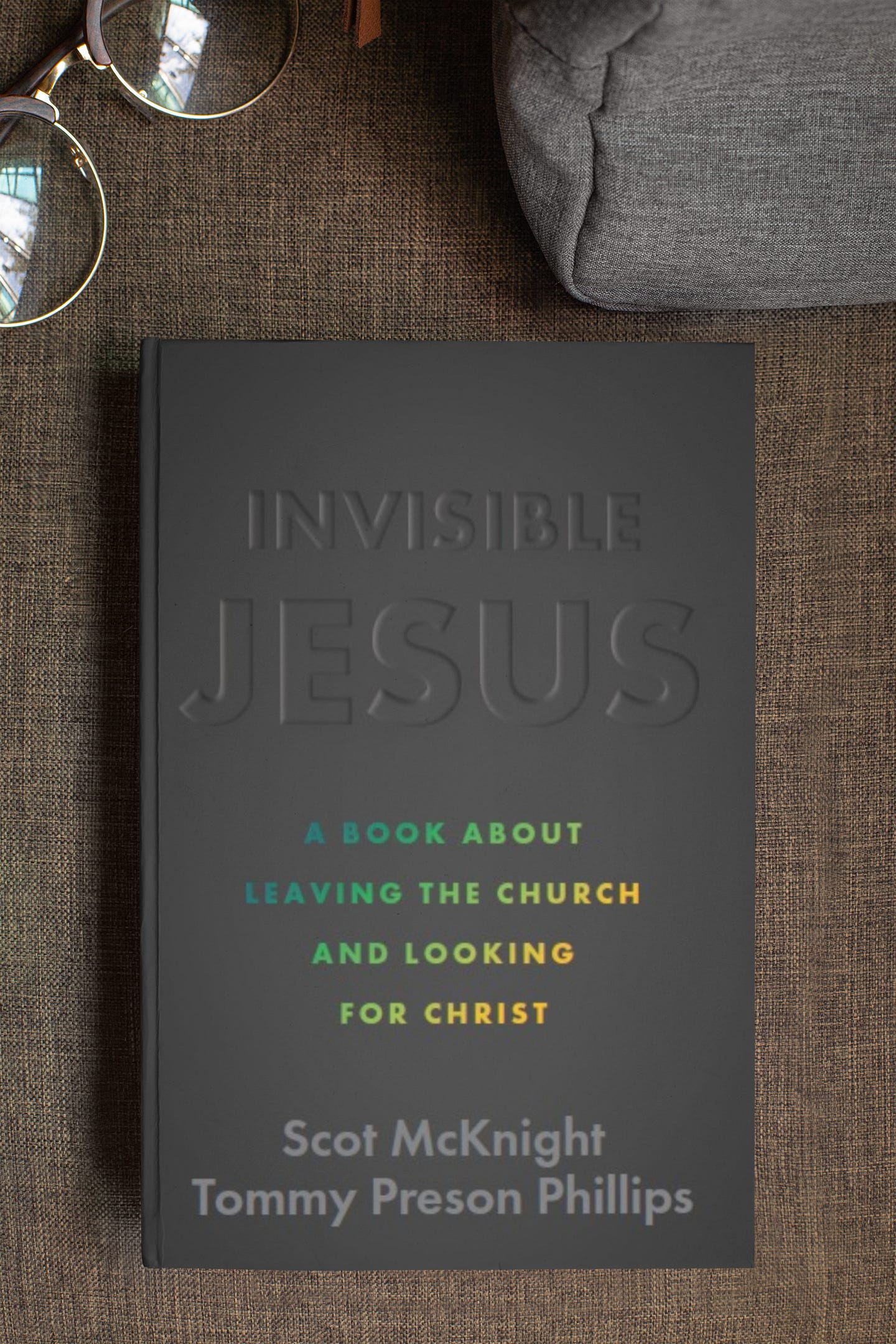In our book, Invisible Jesus: A Book About Leaving the Church and Looking for Christ, Dr. Scot McKnight and I riff on what we see as the three phases of deconstruction as a way of helping those on a faith pilgrimage understand where they are and to help them make sense of what they’re experiencing.
I’ve broken our work into three posts based upon these three phases: Liminality, Elimination, and Liberation. First up:
Liminality
For some, deconstruction is a halfway house for confining church experiences and doctrines—a time of release, preparation, and eventually resocialization. Those in this first stage may say they have had negative church experiences, but they are still convinced the church ought to be something different and better.
Perhaps you can relate. You may feel you can no longer be genuinely and authentically present in a church. You can’t participate in the systemic direction of a church. Its precious doctrines now annoy you. Who cares about the rapture when the existential, deeply personal reality of a living faith is what got raptured? You see participation of any sort as a form of hypocrisy and complicity. You may now think of Sunday-go-to-meeting church behavior as something in your rearview mirror. For you, there is no more pretending. You have become a dissident of the system.
At this point, you know what you don’t believe more than what you do believe. With respect to the church, we would describe this as being in a liminal space, a space between faith and no faith. Many who are in this phase are ambiguous and anxious, wounded and wondering. You may have family and friends who are worried about you, but you may feel a callous disregard for their worries because you are worried about them. It can also be a confusing time, since you don’t always know where to locate yourself.
The sense many people have at this stage is like playing Jenga. You have gone around a circle of players three times and lots of blocks have been removed. The tower is a bit wobbly. You sense that if you pull out this block or that block, the whole thing might suddenly come tumbling down. But you aren’t sure. This sense of the unknown keeps you in that liminal space. You may still stand among the familiar, surrounded by people you have a history with (some good, some bad), but it is a history you know and can navigate. Beyond the familiar, however, the liminal space of the unknown stands empty and vast. You have heard others discrediting those who live there, beyond the borders of your familiar world.
Some people may remain in liminality for years, others for most of their lives, never fully vocalizing the dissonance they see for fear of making ripples that might turn into waves and drown them. They know they risk being cast from fellowship and tarnishing their reputation with gossip and accusations. And so they stay. They stand on the edge of faith, looking out into the distance for something or someone they can cling to. At times it feels like they are clinging to a buoy in a terrifying ocean storm. Some, to be sure, are cock-a-hoop about leaving the faith and the church—excited to party and celebrate their newfound freedoms from religious obligations. But most don’t. Most ponder. And wonder.
In this phase of liminality, all it takes is one person to set them free. Most persons in liminality aren’t driven to the edge of faith merely by something they’ve read. Information doesn’t change humans; incarnation does. Instead, you meet someone who, by divine chance, shares your questions, and you observe that they hold different doctrines without anxiety and without a collapse of their faith. Or you meet someone who is Christlike, who may also embrace people your church has rejected. They aren’t strapped down by a limited, fundamentalist reading of the Bible or by a worldview that rejects established science. Or the someone you encounter may subscribe to a different political ideology and they don’t hate God, as you were assured they would. Regardless, when the embodied representative of your (former) Other steps forth and earns your respect, you inevitably gain strength in your own liminality to courageously continue your journey out of tradition toward Jesus.
An important takeaway for the church as we listen and learn from those in this first stage of deconstruction is that incarnation matters. Jesus must be made visible. Those who earn the respect of the people asking questions, facing doubts, and entering the tunnel of deconstruction will end up illuminating their path forward.
My (Tommy) first step out of the place of liminality (some twenty years ago, now) happened the day I found out that one of the elders in my church, a generous and Christlike man who made Jesus visible for me, believed in evolution (scandalous!). He dropped a comment about it one day in casual conversation, as if it wasn’t a controversial subject in our conservative church. I was astounded. “You believe in evolution?” I asked, to which he simply said, “Of course! You want a drink from the fridge?”—as though he hadn’t said anything unusual at all.
I had grown up in the CCM (Contemporary Christian Music) scene, listening to songs about the evils of evolution. There was a Stephen Curtis Chapman song from the early 1990s about two children standing up against a deceived teacher who was teaching them evolution.3 Another song by Geoff Moore & The Distance making a mockery of evolution and the teachers who taught it.4 Christian media had successfully indoctrinated me to see anyone who believed evolution as openly rebellious or, at the very least, immoral. But this man was neither of those things. He was Christlike, and his embodiment of the Christian faith had a powerful effect on me. Incarnation is effective. That’s why God chose to employ it in the person of Christ Jesus. Jesus—what he said, what he did, and, even more, who he was and is today—compels those in a place of liminality to continue seeking.1
McKnight, Scot; Phillips, Tommy Preson. Invisible Jesus: A Book about Leaving the Church and Looking for Christ (pp. 32-35). (Function). Kindle Edition.





